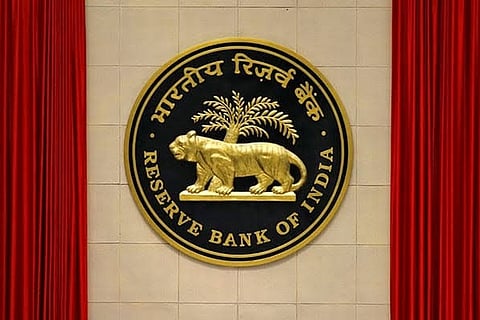
- News Updates
- PSU Watch
- Defence News
- Policy Watch
- हिन्दी न्यूज़
- Jobs Watch
- States News
- Event News

New Delhi: India's natural rate of interest increased to 1.4-1.9 percent in the quarter ending March 2024 from 0.8-1.0 percent estimated in the third quarter of 2021-22 in the second year of the Covid pandemic, said a RBI article on Thursday.
The natural rate is determined by factors that impact long-run saving-investment behaviour. In particular, factors that reduce saving or increase investment raise the natural rate.
Monetary policy divergence across jurisdictions has reignited the debate about the level of the natural rate of interest.
"Updating the estimates of natural rate of interest for India with post-pandemic data, we find an upward shift driven by growth of potential output.
"The estimate of the natural rate for Q4:2023-24 is at 1.4 percent as the lower bound of a wider range of up to 1.9 percent than estimates of 0.8-1.0 percent for Q3:2021-22," said the article.
The article titled ' Updating Estimates of the Natural Rate of Interest for India with Post-Pandemic Evidence' has been authored by Harendra Kumar Behera, a senior official in the RBI's Department of Economic and Policy Research (DEPR).
Abstracting from the wider credible bands around our current estimates in the aftermath of the pandemic, the importance of understanding the natural rate and measuring it accurately with regular updates cannot be overemphasised, it said.
"Policymakers and financial market participants must continuously refine their approaches to estimating the natural rate to ensure that it remains a reliable guide for policies that aim to achieve sustainable economic growth and stability," it added.
The natural rate could also vary due to the influence of monetary policy in the long-run – although standard macroeconomic theory holds that monetary policy is neutral in the long-run and can affect real variables only in a transitory fashion, recent work shows that monetary policy can have long-lasting effects on real variables.
According to the author, India’s demographic structure, characterised by a significant youth population and a growing working age cohort, would influence the natural rate of interest positively by inducing higher saving and investment as well as financial liabilities for education, housing,marriage and retirement.
The central banks said the views expressed in the article are those of the authors and do not represent the views of the RBI.
(PSU Watch– India's Business News centre that places the spotlight on PSUs, Bureaucracy, Defence and Public Policy is now on Google News. Click here to follow. Also, join PSU Watch Channel in your Telegram. You may also follow us on Twitter here and stay updated.)
